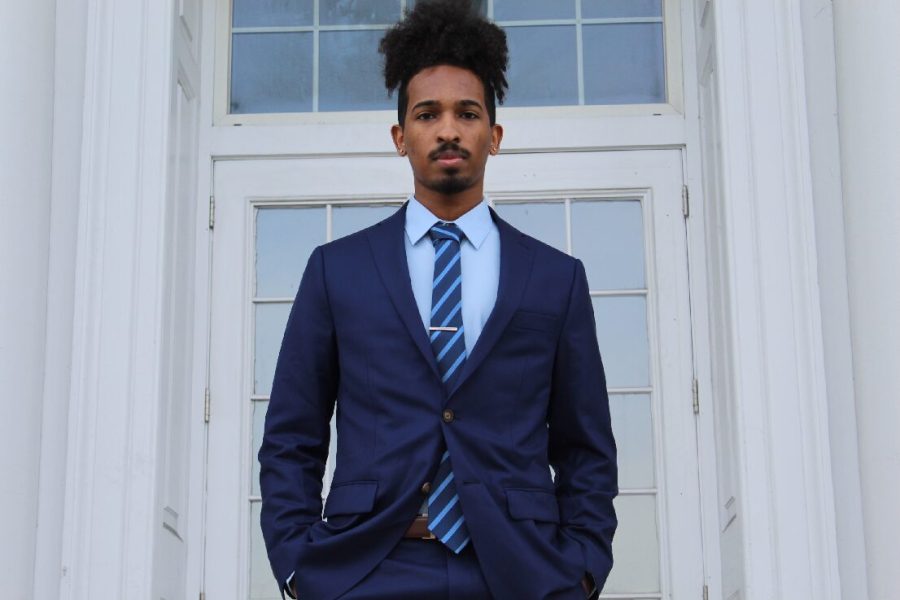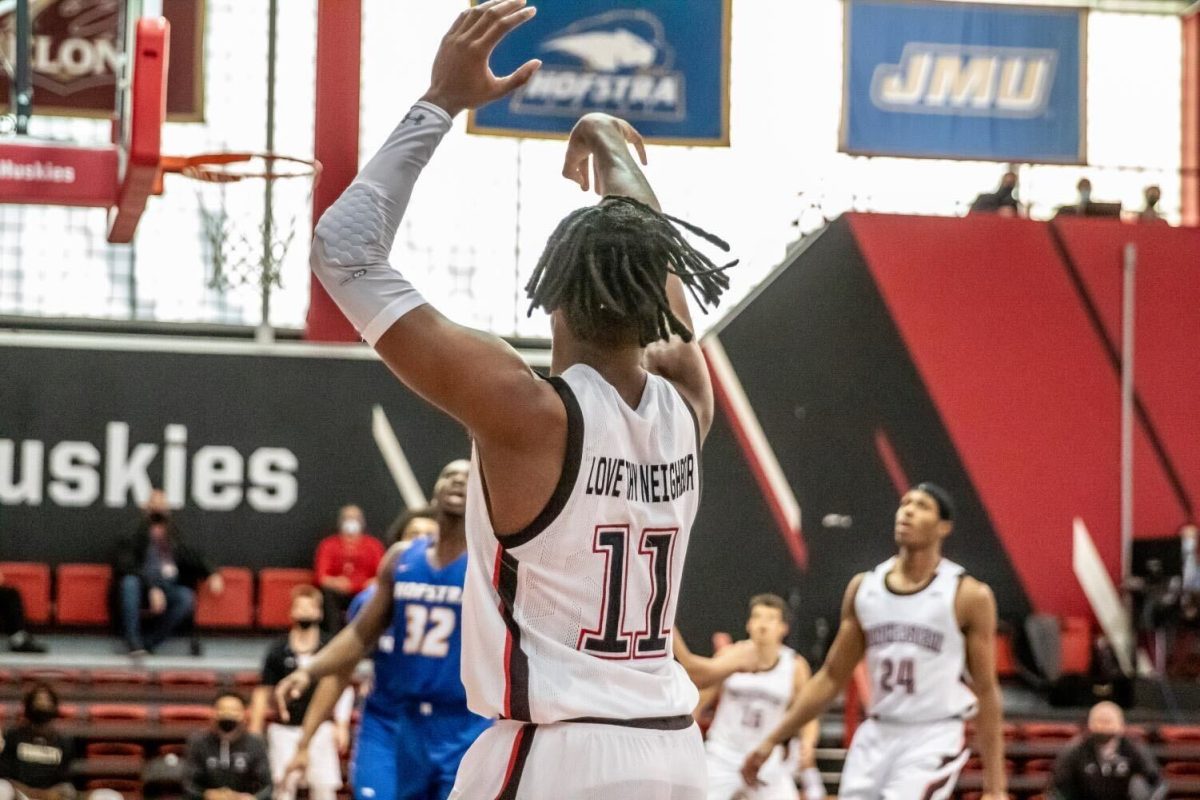Q&A with Omar Mohuddin, Woburn’s youngest mayoral candidate
Omar Mohuddin poses for a picture. Mohuddin has gained a lot of local attention after announcing his plans to run for mayor of Woburn, his hometown. Photo courtesy of Omar Mohuddin.
April 18, 2023
Omar Mohuddin, a first-year business administration major, decided to take the next step in his professional career by running for mayor of his hometown at just 19 years old.
Mohuddin has lived in Woburn — a local suburban city nine miles from Northeastern University — for his entire life. Witnessing firsthand how the city has responded to the current mayor, Scott Galvin, after the recent Woburn teacher’s strike, Mohuddin finally decided to advocate for change.
However, running for mayor comes with its challenges, like challenging two other political powerhouses: Galvin, the current mayor, and Mike Concannon, a well-known face of the city council. Despite the fact he would be the youngest mayoral candidate to ever operate in Massachusetts, according to The Sports Hub, Mohuddin is excited to share his ideas with the city he loves.
This conversation has been edited for length and clarity.
HN: From when you announced your campaign up until now, the whole journey, is it anything like how you would have imagined? Do you think you would have received the type of support you’re receiving?
Mohuddin: No, I can’t say that I imagined it to be this big. I’m very happy and very grateful, definitely. But, I was not ready for the news. I didn’t think that that would be the talk of the town. I can’t say that I really imagined it to be on NBC and then from there, picked up by Boston.com and a bunch of other news people. I mean, even President Aoun himself reached out to me; I was not expecting anything like that to happen. I had the opportunity to meet with elected officials within the state of Massachusetts. I didn’t think that would be possible. So, no, I did not imagine this. I did imagine some type of support, but never imagined this widespread, mainstream type support where people look up to me. And that’s insane to me because to me, it’s something that I’m just doing and I’m passionate about. It means a lot. But I didn’t imagine some people would be affected by it. And I love it, and I’m already starting the process of giving back and haven’t even been elected yet.
HN: Is politics something that you’ve ever wanted to pursue as a career, and how would you merge finance into this?
Mohuddin: I can’t say that I’ve always been drawn to the idea of politics. I definitely had the drive and the fire for it, but I never really assigned the thing that I felt passionate about with politics. And when I look at business, I like finance. I don’t believe that a government is a business, but I believe that sometimes they can be modeled similarly to one, especially when you look at one of the primary roles of the executive of Woburn and the teacher’s strike. That’s something that’s a huge movement, especially recently with how people have been reacting to it. Obviously a teacher strike, those things need to be taken into account and I think someone with a finance background is necessary. I think that they understand the abilities and the necessities of fiscal responsibility in order to handle approaches towards that type of office. And I can’t say that this is only just business, innovation, finance, politics — but I learned from those and made my way to the destination, which is here. And I will continue to grow.
HN: Do you have anyone like a mentor or someone who’s guiding you through this, or is this self-led and you’ve just been learning along the way?
Mohuddin: I’m going to say self-led. I definitely have people who are willing to show their support and willing to help me and kind of push me where I need to be, but that’s only happening because I know what questions to ask. I know who to go to. I know how to reach out to them. So this is all driven by myself. And from there I make the connections that I need to and speak to people I need to, and ask them and talk to them in ways that I see fit.
HN: In your campaign, you’re emphasizing community connections and more care for first responders. How do you plan on achieving that?
Mohuddin: I think step number one is listening more. I think that a big problem, not only within an office but also in the world, is that we don’t listen enough. We hear what you’re saying, but we’re not listening. And I think those are two very different things, because I can hear you speaking and disregard everything that you just said to me. Or I can listen to you, understand what you said and take it. I might not fully relate to you, but I can listen and try to. I think that’s where it starts. From there, you get to work with people and understand, or try to understand, what they’re going through and what you can do to aid them.
I have meetings with the fire union coming up and I’ve met with the teachers union, spoke to them and I will continue to speak to them. That’s an open dialogue that keeps on going about what the city can do for them and what they can do for the city, because I think a lot of people think that’s just the unions. I know that we are a safe community because of first responders. It’s just something we take for granted; public servants and how they willingly choose every single day to do what they do. It’s tough. Based on the data from the Department of Elementary and Secondary Education, Woburn is 65% white, which means that we’re slowly getting to have minorities, which at that point are no longer minorities. So looking at it like that, it’s not the same city that it was 20, 30, 40 years ago. You need to learn how to adapt to the times.
HN: How do you plan to do everything you are promising while still being immersed in the Northeastern community?
Mohuddin: Well, the way I view it would be in the way of that of a grown man raising a family or having a full-time career, because there are people who are 60 years old getting their undergrad and people who are in the midst of a full-time job and getting their master’s. So I think you slowly shift the focus from being a full-time student with a part-time job to a full-time worker as a part-time student. And with the path that I’m looking to take, it’s going to be a full-time job, part-time student. The people come first, the constituents come first, the job first. I believe that the degree will come and it’ll hopefully come within the next year or two, but that’ll be something that I handle.
HN: Is this job one that can be counted as a co-op?
Mohuddin: I’d say so. I haven’t had anyone shut me down about it. I think at this point they might be mad because I’ve made it so big on the news that they don’t have the opportunity to shut me down. I have spoken with Aoun himself and he loves it.
HN: What are some challenges you’ve faced so far on this journey?
Mohuddin: Going up against some of the people I am. Galvin’s been in the game for about 30 years now for the city council, and then as a mayor. Concannon has been serving on the city council for a few years now. So I think my biggest challenge is my youth and the fact I’m going up against these guys who have political experience.
HN: Why do you feel like now is the time to run for mayor, compared to a few years down the line?
Mohuddin: There are a few reasons. I’ll start with the fact that I’m not in the midst of an ongoing full-time dedication that would hinder my ability to complete the job. I’ll refer to raising a family. I think that it’s hard juggling those responsibilities in the household and also having to juggle responsibilities with over 40,000 people in their households. I’m also not in the middle of a career and dealing with that and having to switch focus and kind of switch my direction. So I say I have the time on my hands more than anyone else. I also believe that I have my ear to the streets a lot more. I just came out of a school system that I’m looking to repair. I also have the opportunity to see and experience movement day-to-day. I’d say the fact that I’m living it day-to-day and seeing what’s going on and having the understanding, I think that kind of sets me up to be in the best position at this age to run, compared to my competitors.
HN: What do you hope happens in the future for Woburn and for your time at Northeastern?
Mohuddin: I mean, for my degree, I want to complete it. I’m hoping to complete mine in under three years. If I could do that, I’ll be satisfied. If it takes four years, so be it. With the city of Woburn, my biggest hope is being elected. But after that, what I’ve done now has already set the stage. People know who I am and what I’m believing in and what I’m doing. The problems have been dragged out and everyone is aware of them. Everyone’s hearing what they’re seeing, so you can no longer ignore it. So, I think that my end goal is to be even more involved with the decisions to be made. Woburn averages 25% voter turnout. I think especially with the youth being involved this year, it’ll be a lot higher. I think that we could really shoot for 50 to 60%, which is something you want. That means that people are standing up for themselves, but also the communities they love and they want to see change. They’re doing something about it instead of hoping someone does it for them.







